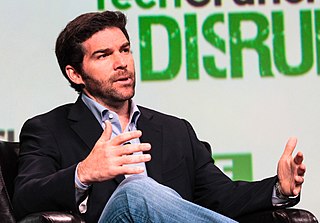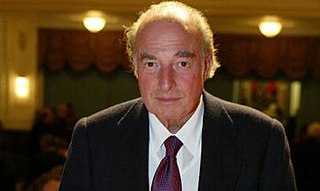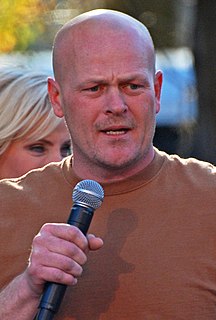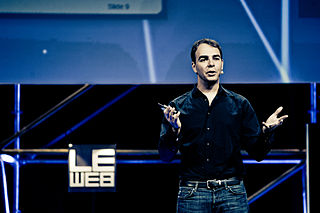A Quote by David Talbot
Do I regret taking the company public? Yes and no. Yes, because it put us under enormous pressure for a young company to go public at that point in its history, something you never could have done in the old days.
Related Quotes
Mandatory auditor rotation is designed to address a potential conflict of interest between a public company and its auditor. Because an auditor is hired and paid by the public company it audits, the auditor's desire to maintain a good relationship with its client could conflict with its duty to rigorously question the client's financial statements.
Remember, you cannot be both young and wise. Young people who pretend to be wise to the ways of the world are mostly just cynics. Cynicism masquerades as wisdom, but it is the farthest thing from it. Because cynics don’t learn anything. Because cynicism is a self-imposed blindness, a rejection of the world because we are afraid it will hurt us or disappoint us. Cynics always say no. But saying “yes” begins things. Saying “yes” is how things grow. Saying “yes” leads to knowledge. “Yes” is for young people. So for as long as you have the strength to, say “yes'.
Most American Hispanics don't belong to one race, either. I keep telling kids that, when filling out forms, they should put "yes" to everything - yes, I am Chinese; yes, I am African; yes, I am white; yes, I am a Pacific Islander; yes, yes, yes - just to befuddle the bureaucrats who think we live separately from one another.
The reason to go public is that it is a massive branding, marketing, credibility, trust-building exercise with your customers, and then it allows you to consolidate power and scale and market share. Do we want to be a huge company with a huge impact? If the answer to that is yes, the only way that that happens is by going public. It is effectively a branding event that catalyzes interest. It helps with recruiting, it helps with marketing, it helps with sales. It just helps on many dimensions. I think it's basically a litmus test for the CEO's ambition.
Probably when I gave things to Slavica [ Ecclestone], you know the shares of the company, and things like that. And she put it all in trust and the trust sold the shares. Um, would I turn the clock back if I could and so I still owned the company completely? Probably yes. It probably wasn't a good decision, but it was the decision that had to be made. Was I happy that I made it? No.
We were never lovers, and we never will be, now. I do not regret that, however. I regret the conversations we never had, the time we did not spend together. I regret that I never told him that he made me happy, when I was in his company. The world was the better for his being in it. These things alone do I now regret: things left unsaid. And he is gone, and I am old.

































